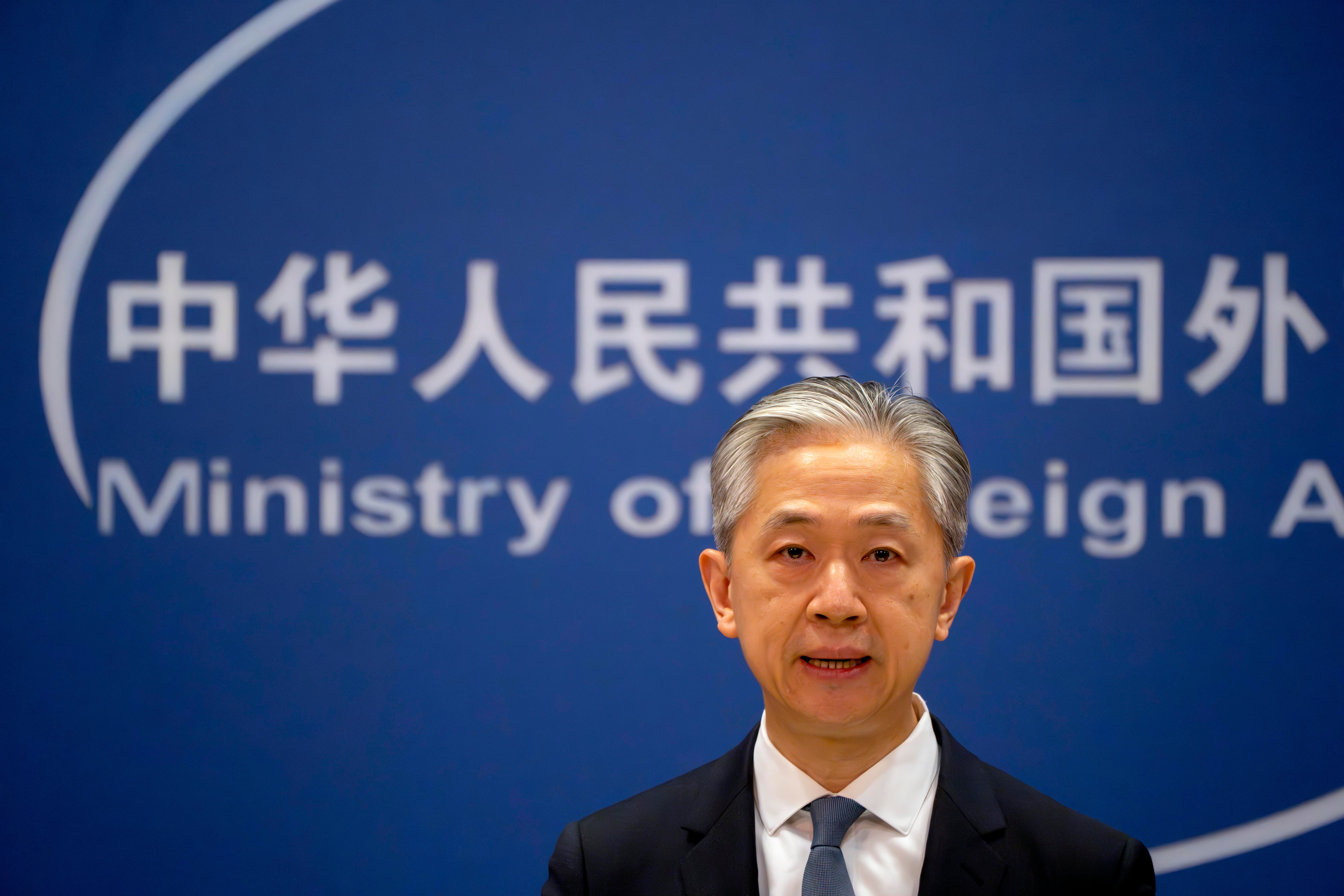China warns against 'geopolitical games' as US announces Blinken trip to Papua New Guinea
China is warning against the introduction of “geopolitical games” in the South Pacific following the announcement that U.S. Secretary of State Antony Blinken will visit Papua New Guinea next week

Your support helps us to tell the story
From reproductive rights to climate change to Big Tech, The Independent is on the ground when the story is developing. Whether it's investigating the financials of Elon Musk's pro-Trump PAC or producing our latest documentary, 'The A Word', which shines a light on the American women fighting for reproductive rights, we know how important it is to parse out the facts from the messaging.
At such a critical moment in US history, we need reporters on the ground. Your donation allows us to keep sending journalists to speak to both sides of the story.
The Independent is trusted by Americans across the entire political spectrum. And unlike many other quality news outlets, we choose not to lock Americans out of our reporting and analysis with paywalls. We believe quality journalism should be available to everyone, paid for by those who can afford it.
Your support makes all the difference.China on Friday warned against the introduction of “geopolitical games” in the South Pacific following the announcement that U.S. Secretary of State Antony Blinken will visit Papua New Guinea next week.
The U.S. opted to send Blinken after President Joe Biden canceled what was to have been a historic stop in Papua New Guinea as well as a visit to Australia for a meeting of leaders of the so-called Quad partnership so he can focus on debt limit talks in Washington.
The administration has made putting a greater focus on the Pacific region central to its global outreach, largely to counter China’s growing influence there.
“China has no objection to normal exchanges and cooperation between relevant parties and Pacific Island countries, and has always advocated that the international community should pay more attention to and support the development and revitalization of the island countries,” Foreign Ministry spokesperson Wang Wenbin said at a daily briefing.
However, Wang added, “We also oppose any introduction of any geopolitical games into the Pacific Island country region."
Biden's planned Papua New Guinea visit would have been the first by a sitting U.S. president to the island country of more than 9 million people.
The area has received diminished attention from the U.S. in the aftermath of the Cold War, and China has increasingly filled the vacuum through increased aid, development and security cooperation. The U.S. and regional partners New Zealand and Australia were particularly concerned when China signed a security pact last year with the Solomon Islands that could allow the presence of Chinese naval ships and security forces.
The Solomon Islands later agreed to sign an accord between the United States and more than a dozen Pacific nations after indirect references to China were removed, with its foreign minister saying he didn't want his country to be forced to take sides.
Last September, Biden also hosted leaders from more than a dozen Pacific Island countries at the White House, announcing a new strategy to help the region with climate change and maritime security. A second summit is planned later this year.
His administration also recently opened embassies in the Solomon Islands and Tonga and has plans to open one in Kiribati.
During his visit on Sunday and Monday to Port Moresby, Papua New Guinea's capital, Blinken will meet with leaders of the Pacific Islands Forum on Biden's behalf, State Department spokesperson Matthew Miller said Thursday.
The sides will discuss “shared priorities such as tackling the climate crisis, advancing inclusive economic growth for the people of the Pacific Islands, and highlighting the U.S. commitment to realize a prosperous, resilient, and secure Pacific Islands region,” Miller said, without mentioning China.
Blinken will also meet with Papua New Guinea Prime Minister James Marape and sign bilateral defense cooperation and maritime security agreements, Miller said.